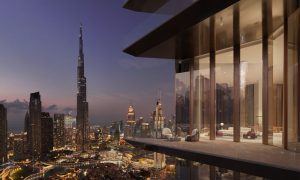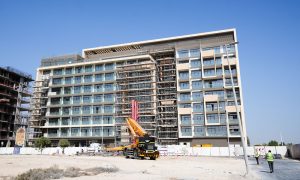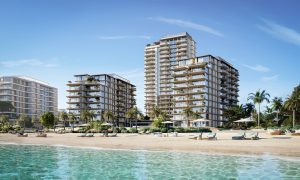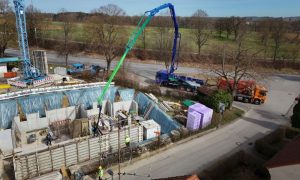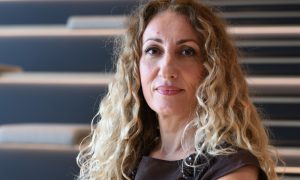Four cement factories to use alternative fuels following deal with MOCCAE and Emirates RDF
The MoUs are said to be part of MOCCAE’s support for integrated waste management projects that treat waste and transform it into economic resources

In a bid to boost the involvement of the private sector in achieving Net Zero, applying circular economy principles, and building an integrated waste management system, the Ministry of Climate Change and Environment (MOCCAE) and Emirates RDF have signed four memoranda of understanding (MoUs) with Fujairah Cement Industries, JSW Cement, Lafarge Emirates, and Star Cement. The deal will see the companies partially use alternative fuel generated from municipal solid waste (MSW) treatment by the Emirates RDF plant in Umm Al Quwain in their manufacturing operations.
The plants will start to use alternative biofuel in their production activities in confirmation of their commitment to sustainability, and supporting the development of a circular economy through an effective and long-term waste management solution, in line with the UAE Circular Economy Policy 2021-2031, MOCCAE stated.
The signing ceremony at MOCCAE drew the participation of Her Excellency Mariam bint Mohammed Almheiri, Minister of Climate Change and Environment, representatives of the Follow-Up Committee of the Initiatives of the UAE President, members of the Follow-up and Supervision Committee of the Emirates RDF Project, and executive directors of the cement factories.
In August 2022, the MOCCAE unveiled a pledge designed to boost the private sector’s contribution to the UAE’s Net Zero by 2050 initiative.

“The participation of the private sector is a main pillar of the UAE’s green economy transition and the adoption of circular economy methods, the foremost of which is integrated waste management. Therefore, the ministry is keen to expand its cooperation with private sector entities to enhance their effective contribution to the country’s endeavors to drive sustainable economic development and build a better, greener future,” Her Excellency explained.
She added: “The signing of the agreements with a group of leading cement factories in the country to partially use alternative fuel in their operations is a high-impact step within our efforts to implement integrated waste management and reduce harmful emissions.”
Her Excellency extended her appreciation to the Follow-Up Committee of the Initiatives of the UAE President for its sponsorship and follow-up of the implementation of the Emirates RDF project in Umm Al Quwain. She also thanked the Federal Electricity and Water Authority (FEWA), Ajman Municipality and Planning Department, and Umm Al Quwain Municipality for their support of this project.
In September 2022, the MOCCAE introduced the National Air Quality Agenda 2031.

The MoUs are said to be part of MOCCAE’s support for integrated waste management projects that treat waste and transform it into economic resources, in line with the Ministerial Decree No. 98 of 2019 on using refuse-derived fuel (RDF) produced from waste treatment procedures in the operations of cement factories.
The Ministry supports national industries that contribute to achieving its goals, and aims to motivate cement factories to meet at least 10 percent of their total energy needs from alternative fuels produced by MSW treatment, the MOCCAE added.
The Emirates RDF plant in Umm Al Quwain is said to be the first facility of its kind in the country. It treats MSW generated in Ajman and Umm Al Quwain, and turns it into RDF that can be used to provide energy to power the operations of cement factories. The project significantly contributes to diverting MSW from landfills, implementing integrated waste management, and achieving the UN Sustainable Development Goals (SDGs), the MOCCAE noted.
In October 2022, Global Mission launched a $17bn fund to achieve the UN’s 17 Sustainable Development Goals and, later in the month, Farnek signed MOCCAE’s pledge to support the UAE’s decarbonisation drive.

